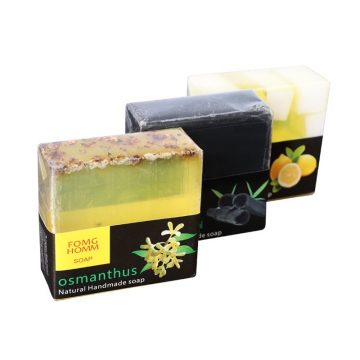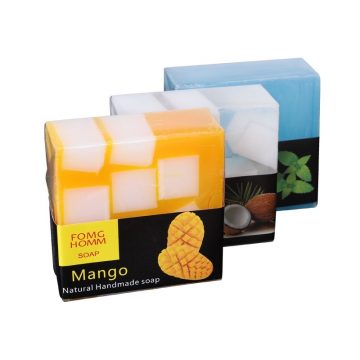**1. Fragrance-Free Soaps: Fragrances can be a common trigger for skin sensitivities. Opt for soaps that are labeled as fragrance-free or unscented to minimize the risk of irritation.
**2. Hypoallergenic Soaps: Look for soaps that are specifically labeled as hypoallergenic. These products are formulated to minimize the likelihood of causing allergic reactions or skin irritations.
**3. Natural and Organic Soaps: Soaps made from natural and organic ingredients often have fewer synthetic chemicals that can be harsh on sensitive skin. Look for options with minimal ingredients and avoid additives like artificial colors and fragrances.
**4. Glycerin-Based Soaps: Glycerin is a moisturizing ingredient that can be gentle on sensitive skin. Glycerin-based soaps help retain moisture and can be soothing.
**5. Oatmeal Soaps: Oatmeal is known for its calming and soothing properties. Oatmeal-based soaps can help relieve itching and irritation associated with sensitive skin conditions.
**6. Shea Butter Soaps: Shea butter is a natural moisturizer that can help maintain the skin’s moisture barrier. Soaps containing shea butter can be hydrating and gentle on sensitive skin.
**7. Coconut Oil Soaps: Coconut oil is another moisturizing ingredient that can be gentle on sensitive skin. Look for soaps that contain pure coconut oil or a combination of natural oils.
**8. Aloe Vera Soaps: Aloe vera has anti-inflammatory and soothing properties. Soaps infused with aloe vera can provide relief to sensitive skin.
**9. Calendula Soaps: Calendula is known for its healing and anti-inflammatory properties. Calendula-based soaps can be soothing for sensitive or irritated skin.
**10. Patch Test: Before using any new soap, perform a patch test on a small area of your skin to ensure you don’t experience any adverse reactions.
**11. Avoid Harsh Ingredients: Avoid soaps that contain harsh ingredients like sulfates, parabens, and synthetic fragrances, as these can exacerbate sensitivity.
**12. Simple Formulations: Look for soaps with simple ingredient lists to reduce the risk of irritation.
**13. Moisturizing Routine: After using a gentle soap, follow up with a hypoallergenic and fragrance-free moisturizer to lock in moisture.
**14. Consult a Dermatologist: If you have severe skin sensitivities or ongoing skin issues, consider consulting a dermatologist for personalized recommendations.
Remember that everyone’s skin is unique, so it might take some trial and error to find the soap that works best for your sensitive skin. Pay attention to how your skin reacts and be patient in finding the perfect solution for your skin care needs.








